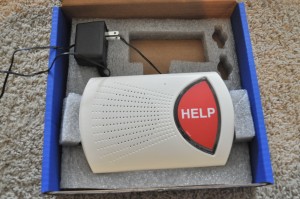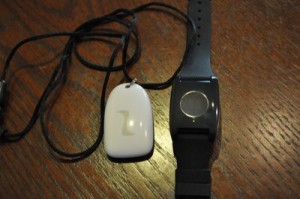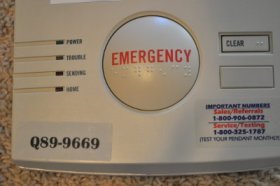Why Watching the News Could Be Bad for Your Health
 We are living in the information age, and while that has its advantages, it also means that we are constantly bombarded with disasters. We hear about shootings, crime, war, terrorism, human rights violations, violence, and destruction on a daily basis. With competition among the media for entertainment value, the news is presented in a depressing, emotionally-charged, sensational manner that makes us feel that world is falling apart around us.
We are living in the information age, and while that has its advantages, it also means that we are constantly bombarded with disasters. We hear about shootings, crime, war, terrorism, human rights violations, violence, and destruction on a daily basis. With competition among the media for entertainment value, the news is presented in a depressing, emotionally-charged, sensational manner that makes us feel that world is falling apart around us.
Many people feel a social responsibility to stay informed about current events. However, according to an article in Psychology Today, negative sensationalism has been increasing in the news for 20 to 30 years. The article reports that a study was conducted in which researchers found that watching negative news bulletins made people sadder and more anxious. Study participants who watched negative news spent more time thinking and talking about their own worries and tended to feel these problems and issues were more serious than they were in reality.
The article concluded that negative news broadcasts can not only make people feel less happy and generally more anxious, these news stories also exacerbate personal anxieties and worries. This study demonstrated that frequent exposure to sensationalized negativity can have real, harmful psychological effects.
Bad News and Stress Hormones
Mood and emotional state can have an impact on physical health. As reported in a Medical Daily article about the psychological effects of bad news, the body produces stress hormones when it perceives a threatening situation, as occurs with sensationalized, “scaremongering” – the current standard in news reporting. According to the Mayo Clinic, chronic stress can put your health at risk.
Our built-in “fight or flight” stress response system causes the body to release adrenaline, which increases heart rate and elevates blood pressure. It also releases cortisol, which increases sugar in the blood, alerts the immune system, and suppresses the reproductive system, digestive system, and growth processes.
When the perceived threat has passed, hormone levels should return to normal, blood pressure and heart rate should drop, and the other systems of the body should resume functioning as they normally would. However, when perceived threats are constantly present, as occurs in an ongoing barrage of bad news, the “fight or flight” response system can stay activated, increasing risk for a range of health problems, including:
- Sleep disorders
- Weight gain
- Digestive problems
- Heart disease
- Headaches
- Depression
- Anxiety
- Memory and concentration impairment
Be Aware of How the News Is Affecting You and Protect Your Health
One study suggests that watching traumatic images in the media can trigger PTSD-type symptoms, and severity of the symptoms directly correlates to how much time is spent watching TV. The Medical Daily article recommends that people should be conscious of how the news is affecting them and not feel bad about shutting it off.
When you avoid watching sensationalized news, it does not mean that you don’t care about the world around you. It simply means that you are aware of how it affects you and realize that feeling anxious, hopeless, or depressed benefits no one, least of all yourself.
Protect Your Health with an Emergency Medical Alert System
Bad news and stress can be harmful to your health, but having the right emergency medical alert system can alleviate more realistic concerns. In case of an accident or sudden illness, you can get help on the way immediately with the push of a button on a pendant or bracelet.
With modern technological advances, a mobile emergency medical alert systems with a cellular connection can travel with you wherever you go. GPS technology can pinpoint your exact location for the operator who responds to your alert, no matter where you happen to be at the time.
Prompt medical attention can make all the difference in a health crisis. With an emergency medical alert bracelet or pendant, you can go about your life knowing that you can easily get help if you need it. See our medical alert comparison for information about emergency medical alert systems with advanced features now available on the market.



